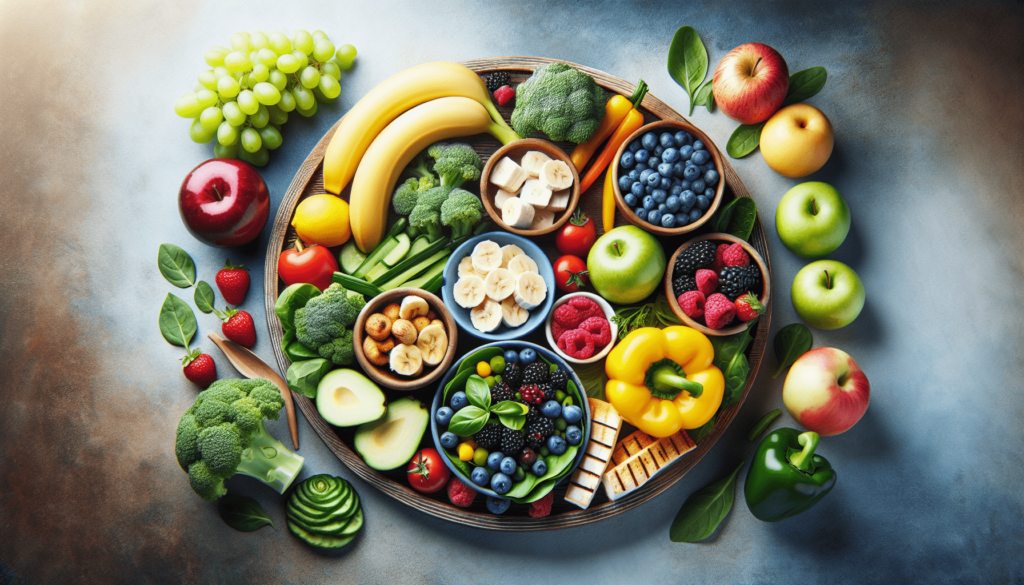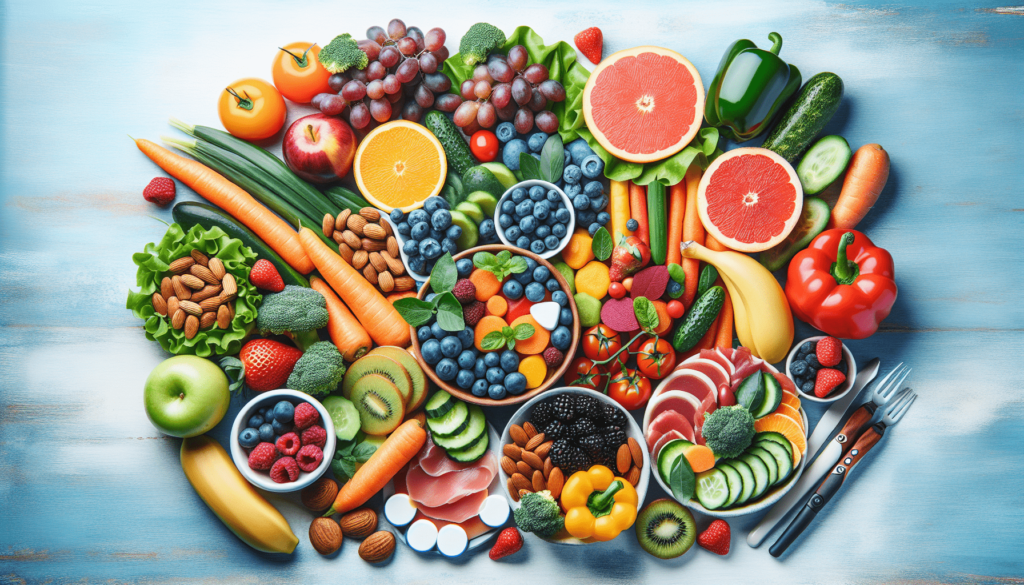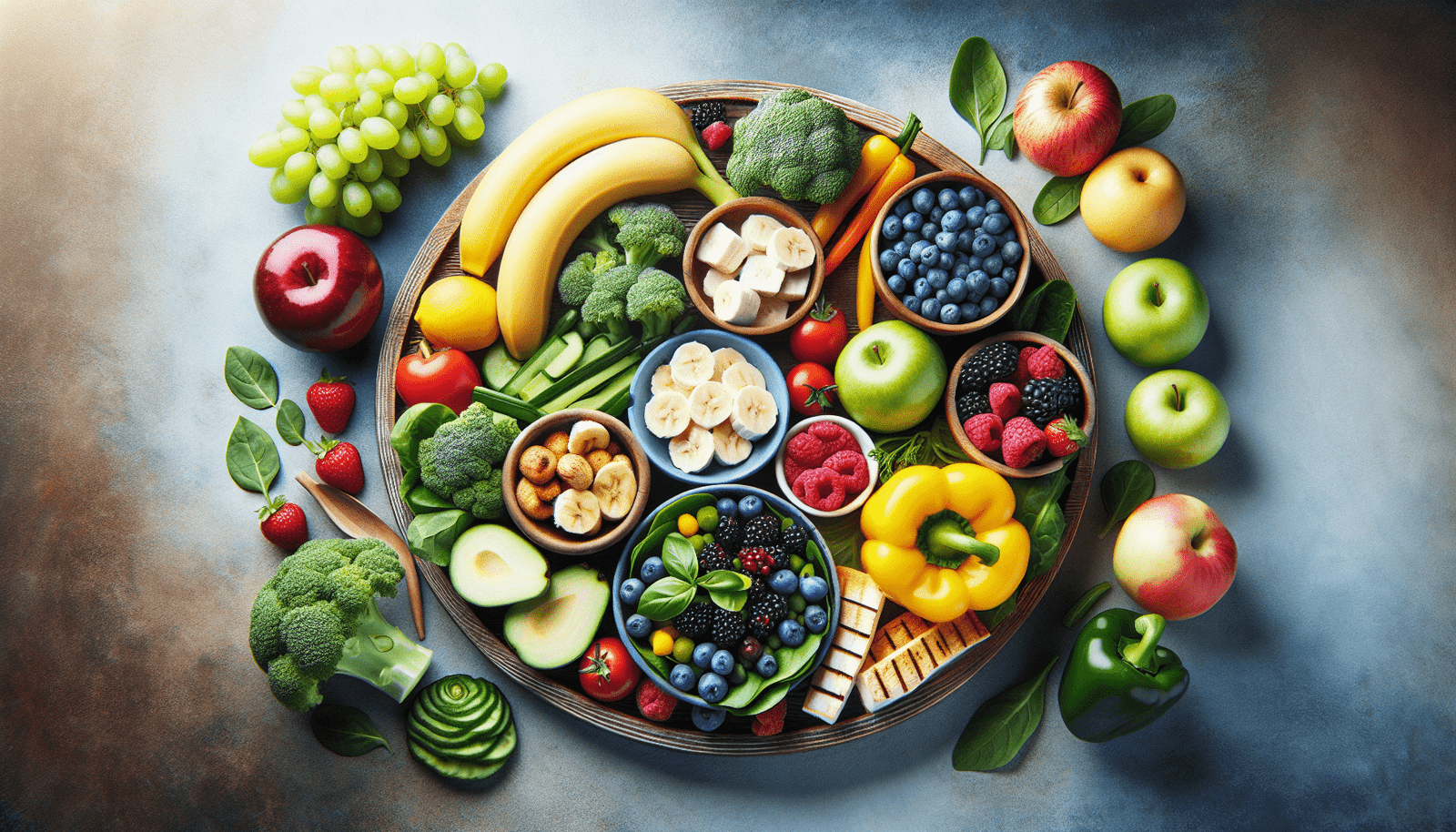Welcome to the world of managing diabetes through food and drink! In this article, you’ll discover how small changes in your diet and beverage choices can make a big impact on your overall health and well-being. From balancing carbohydrates to choosing the right kind of liquids, we’ll explore practical strategies to help you navigate the world of diabetes management with ease. Get ready to take control of your health and feel empowered to make positive choices for your body every day. Can You Still Enjoy Food and Drink with Diabetes?
Understanding Diabetes and Nutrition
Managing diabetes involves not only monitoring your blood sugar levels and taking medications, but also paying close attention to what you eat and drink. A well-balanced diet plays a crucial role in controlling diabetes and preventing complications. Let’s explore some key considerations for selecting the right foods and beverages to support your health and well-being.
Carbohydrates and Blood Sugar Control
Foods containing carbohydrates have the most significant impact on blood sugar levels. When consumed, carbohydrates are broken down into glucose, which causes your blood sugar levels to rise. For individuals with diabetes, it is essential to choose carbohydrates that are nutrient-dense and have a lower glycemic index to help manage blood sugar levels more effectively.
The Importance of Fiber
Fiber is a type of carbohydrate that the body cannot digest. It helps slow down the absorption of sugar into the bloodstream, preventing spikes in blood sugar levels. Including fiber-rich foods in your diet, such as fruits, vegetables, whole grains, and legumes, can improve blood sugar control and promote overall health.
Creating a Balanced Plate
Achieving balance in your meals is key to managing diabetes effectively. By including a variety of foods from different food groups, you can ensure that you are getting essential nutrients while keeping your blood sugar levels stable.
The Plate Method
One popular approach to creating balanced meals for individuals with diabetes is the plate method. With this method, you divide your plate into sections for different food groups:
- Half of your plate should be filled with non-starchy vegetables like leafy greens, broccoli, and bell peppers.
- A quarter of your plate should contain lean protein sources such as chicken, fish, tofu, or legumes.
- The remaining quarter of your plate should be reserved for whole grains or starchy vegetables like brown rice, quinoa, or sweet potatoes.
Snacks and Portion Control
Snacking can be a helpful way to manage hunger and prevent overeating during meals. However, it is essential to choose healthy snacks and watch your portions to avoid spikes in blood sugar levels. Opt for snacks that combine protein and fiber to help keep you full and satisfied, such as a small handful of nuts with a piece of fruit or plain Greek yogurt with a sprinkle of granola.

Making Informed Food Choices
When you have diabetes, making informed food choices is crucial for managing your condition and preventing complications. By understanding how different foods impact your blood sugar levels and overall health, you can make choices that support your well-being.
Reading Food Labels
Reading food labels can help you make informed choices about the foods you eat. Pay attention to the serving size, total carbohydrates, fiber content, and added sugars when selecting packaged foods. Look for products with lower total carbohydrates and added sugars to minimize the impact on your blood sugar levels.
Meal Planning and Preparation
Meal planning and preparation can make it easier to stick to a diabetes-friendly diet and avoid impulsive food choices. Set aside time each week to plan your meals, make a grocery list, and prepare healthy options in advance. Having nutritious meals and snacks readily available can help you stay on track and maintain stable blood sugar levels.
Healthy Food and Drink Choices for Diabetes
Choosing the right foods and beverages is essential for managing diabetes effectively. By opting for nutrient-dense, whole foods and staying hydrated with water, you can support your health and well-being while keeping your blood sugar levels stable.
Lean Protein Sources
Incorporating lean protein sources into your meals can help stabilize blood sugar levels and promote satiety. Opt for lean meats like skinless chicken breast, turkey, or fish, as well as plant-based protein sources like tofu, tempeh, and legumes.
Whole Grains
Whole grains are a good source of fiber and essential nutrients, making them a valuable addition to a diabetes-friendly diet. Choose whole grain options like brown rice, quinoa, whole wheat pasta, and oatmeal to support blood sugar control and overall health.
Healthy Fats
Including healthy fats in your diet can help improve insulin sensitivity and reduce inflammation. Choose sources of unsaturated fats like avocado, nuts, seeds, and olive oil to support heart health and blood sugar control.
Low-Glycemic Index Foods
Foods with a lower glycemic index cause a slower rise in blood sugar levels compared to high-glycemic index foods. Opt for low-glycemic index options like sweet potatoes, beans, lentils, and non-starchy vegetables to help manage blood sugar levels more effectively.
Sugar-Free and Low-Sugar Options
When choosing sweeteners and desserts, opt for sugar-free or low-sugar options to satisfy your sweet tooth without negatively impacting your blood sugar levels. Look for products sweetened with artificial sweeteners, stevia, or monk fruit extract to enjoy treats in moderation.
Hydration
Staying hydrated is essential for overall health and well-being, especially for individuals with diabetes. Opt for water as your primary beverage choice and limit sugary drinks like soda, fruit juice, and energy drinks. Herbal teas, sparkling water, and infused water can be flavorful alternatives to keep you hydrated throughout the day.

Alcohol and Diabetes
Alcohol consumption can have an impact on blood sugar levels and overall health for individuals with diabetes. Understanding how alcohol affects your body and making informed choices can help you enjoy an occasional drink without compromising your well-being.
Moderation
Moderation is key when it comes to alcohol consumption for individuals with diabetes. Limit your intake to one drink per day for women and up to two drinks per day for men. Be mindful of portion sizes and choose lower-calorie and lower-carb options when possible.
Monitoring Blood Sugar Levels
Alcohol can cause fluctuations in blood sugar levels, making it essential to monitor your levels carefully when drinking. Test your blood sugar before and after drinking alcohol to understand how it affects your body and make adjustments as needed.
Healthy Choices
Opt for lower-sugar and lower-carb alcoholic beverages like light beer, dry wines, or spirits with sugar-free mixers to minimize the impact on blood sugar levels. Avoid sugary cocktails, high-calorie drinks, and binge drinking to maintain stable blood sugar control.
Conclusion
Managing diabetes through a balanced diet and informed food choices is crucial for supporting your health and well-being. By selecting nutrient-dense foods, monitoring your portions, and staying hydrated, you can keep your blood sugar levels stable and reduce the risk of complications associated with diabetes. Remember to consult with a healthcare provider or registered dietitian to develop a personalized nutrition plan that meets your individual needs and preferences. With the right approach to food and drink, you can enjoy a delicious and satisfying diet while managing your diabetes effectively.


